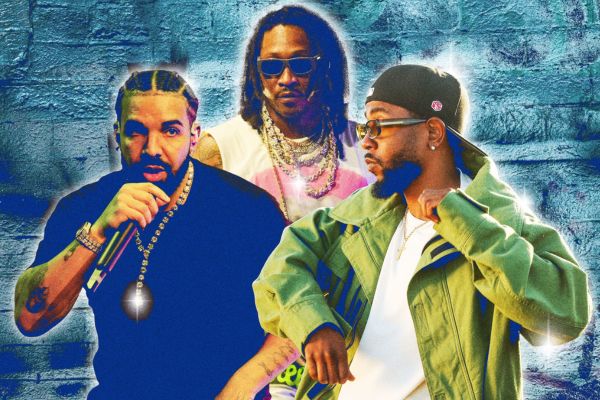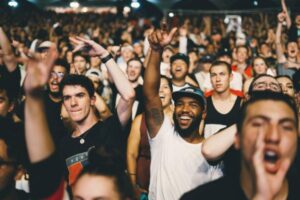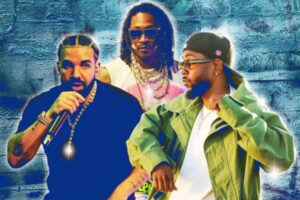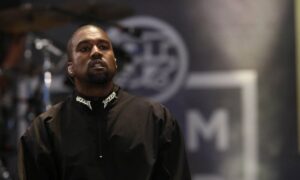
You can feel it — hip-hop’s energy isn’t what it used to be, not in a bad way, just in a different one. The era that was built on flexing, chaos, and shock value is slowing down. The culture is evolving. For the first time in decades, hip-hop isn’t dominating Billboard the way it used to. But that doesn’t mean it’s dying — it means it’s shedding its ego. What’s coming next isn’t louder… It’s smarter, more intentional, and a lot more human.
We’ve Hit a Turning Point
The last ten years of rap were about being the biggest, richest, or most viral. The internet made everything about attention, not art. But now, that constant noise has started to feel empty. People are craving honesty again. It’s the same reason the culture is starting to gravitate toward artists like Teezo Touchdown, Redveil, Jean Dawson, Lil Yachty’s experimental side, or even Tyler, the Creator’s later eras. These artists are proof that the new generation isn’t chasing “hard” — they’re chasing feeling. The new era isn’t about who can yell the loudest — it’s about who can say something that actually means something.
The Death of Cool Flex
Hip-hop used to thrive on status talk. Jewelry, cars, fame — all that used to be the dream. And for good reason. Coming from struggle, it made sense to flex success. But now, that conversation feels outdated. People are tired of perfection. They want artists who look and feel like them. That’s why this next wave of hip-hop is pushing away from the performance of confidence and leaning more into vulnerability, experimentation, and individuality. The most powerful flex now? Not needing to flex at all.
The Rise of the Experimental Era
The next era of hip-hop is defined by risk. Artists are bending sounds, mixing aesthetics, and breaking away from what people expect a rapper to be. Look at Lil Yachty’s “Let’s Start Here.” He completely ditched trap drums for psychedelic guitars and live instruments — and it worked. He proved that evolution doesn’t have to mean betrayal. Or Teezo Touchdown, who built his whole image off raw emotion and performance art. He turned vulnerability into design. That’s what makes this new generation powerful — they’re not scared to fail publicly.
Style Is Speaking Louder Than Lyrics
Fashion is also playing a huge role in this shift. The baggy jeans, the leather fits, the rockstar makeup — it’s all showing that hip-hop doesn’t have one look anymore. The genre used to be about representation; now it’s about expression. You can see that through artists like A$AP Rocky, Ken Carson, Yeat, and Travis Scott, who are all redefining what hip-hop looks like visually. They’re turning fashion into language. In this era, your fit says just as much as your bars.
The Internet Changed the Blueprint
Social media used to be a tool. Now, it’s part of the art form. Artists don’t need big label rollouts anymore — they just need to build community. That’s what this new generation understands. The best example is how independent artists are thriving through TikTok, reels, and community-driven fandoms. They’re not waiting for gatekeepers to co-sign them. They’re using conversation as marketing. The next era of hip-hop will be built by people who understand emotion, aesthetics, and storytelling — not algorithms.
We’re Entering the “Feel Something” Phase
This new wave isn’t about who can rap the fastest or stunt the hardest. It’s about who can make you feel something real again. You can hear it in the production — less 808-heavy chaos, more space, more melody, more soul. It’s emotional without being soft, and introspective without being sad. It’s that late-night energy that artists like Steve Lacy, Don Toliver, and Brent Faiyaz have mastered — where the beat doesn’t just move you, it haunts you. People don’t want perfect rappers anymore — they want human ones.
The Message Is Shifting
Old hip-hop was about proving you were untouchable. New hip-hop is about admitting you’re human. That doesn’t make it weaker — it makes it timeless. You can feel that shift even in mainstream names. Artists like Drake have built entire worlds around emotion and confession, while Kendrick Lamar turned self-awareness into poetry. That lane is expanding — not shrinking. The next wave of rappers isn’t competing to be the loudest; they’re trying to be the most honest.
Why the Underground Is Leading
Every new movement starts outside the system. In fact, the most innovative music right now is emerging from underground or genre-blurring spaces — from artists who refuse to fit into traditional categories. Instead of chasing trends, they’re dropping songs that sound like no one else’s. Meanwhile, they’re building small, devoted audiences and letting the art spread naturally. In other words, that’s the new model: create what feels true, and the right people will find it. Ultimately, this is what’s keeping hip-hop alive. It’s not dying — rather, it’s decentralizing.
Hip-Hop Is Evolving, Not Ending
When people say “hip-hop fell off,” what they really mean is: the old formula stopped working. The flashy, surface-level approach can’t hold attention anymore. But culture never dies — it reinvents itself. We’re watching hip-hop evolve the same way rock and jazz did. It’s not losing power — it’s gaining depth. Hip-hop used to be rebellion through volume. Now it’s rebellion through vulnerability. And that’s a beautiful thing.
Read: How to open a stuck cocktail shaker
The Future Is About Intention
The next era of hip-hop isn’t about dominance; instead, it’s about design. Today, artists are thinking deeper — about visuals, structure, emotion, and how it all connects. In essence, it’s music as architecture now. As a result, you’ll see more short films, more hybrid drops, and more artists curating immersive experiences rather than just releasing singles. Moreover, hip-hop is merging with art, fashion, and film in ways we’ve never seen before. Ultimately, it’s not just a genre anymore — it’s a language.
Final Thought
The next era of hip-hop isn’t here to compete with the past — it’s here to continue the story. It’s slower, more emotional, more experimental, and more open-minded. It’s less about who’s on top and more about who’s saying something that matters. Hip-hop started as an expression, not a perfection. This next wave is bringing that energy back. So if you’re an artist, creative, or fan — stop asking if hip-hop’s dying. It’s not. It’s just feeling again.














